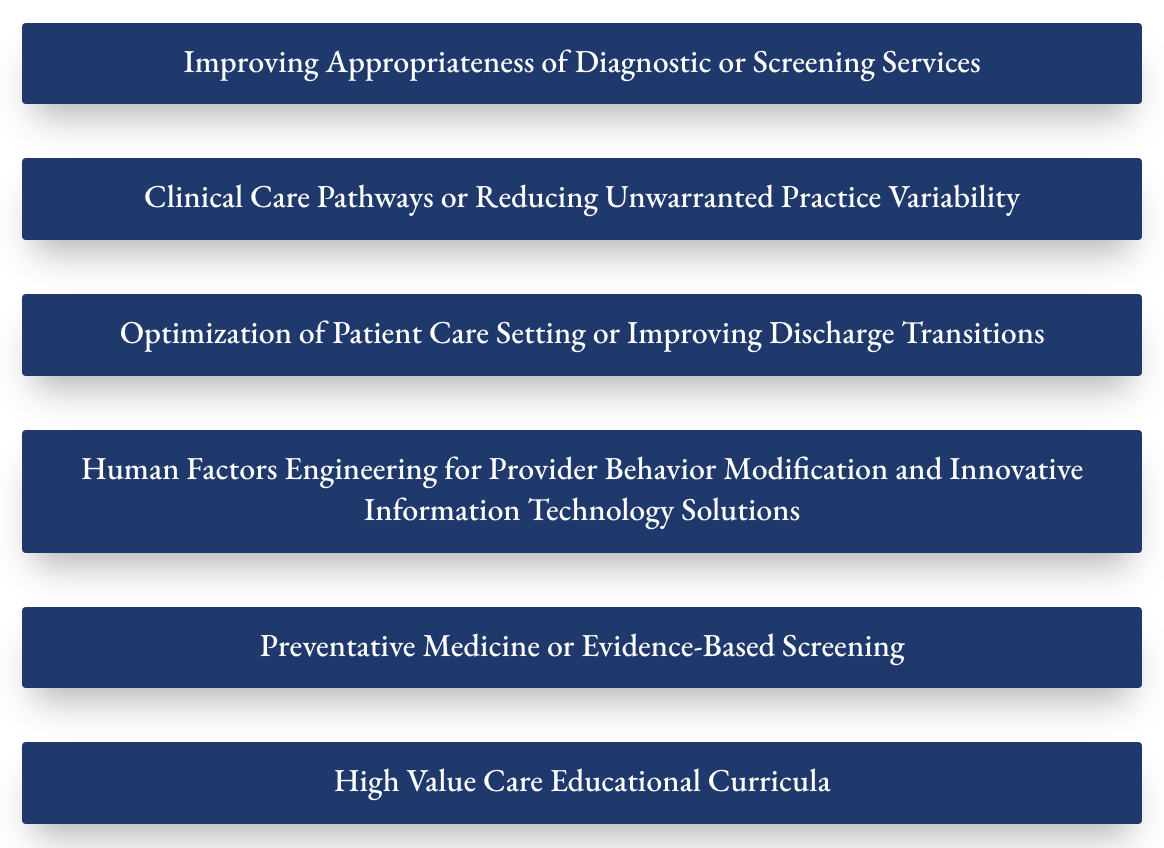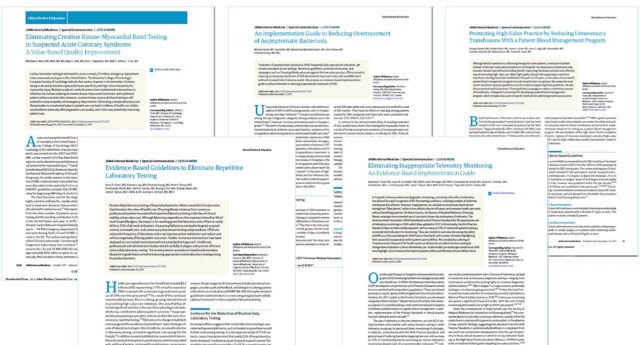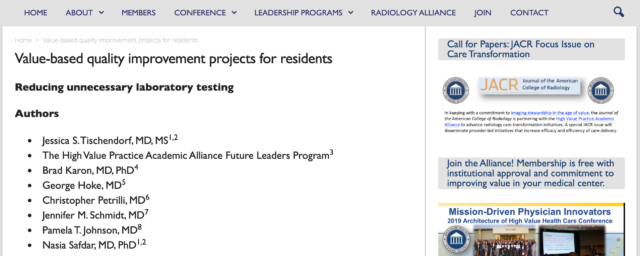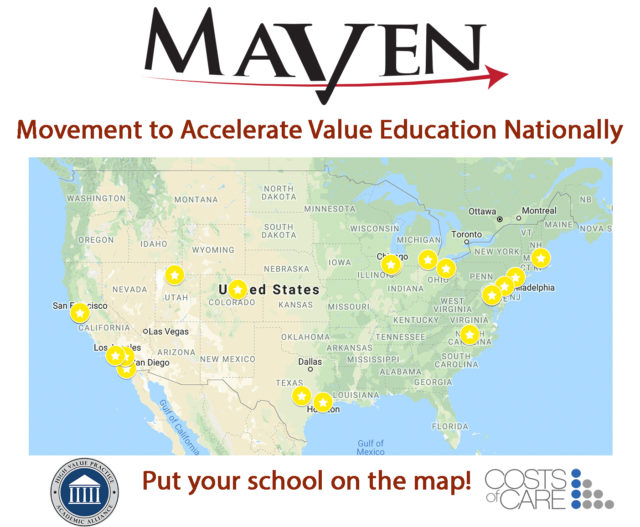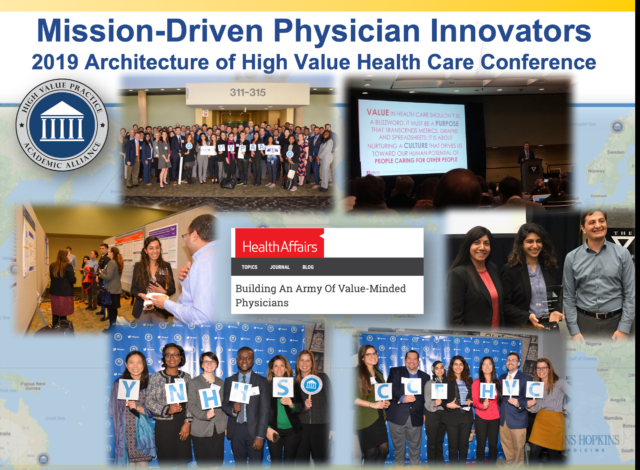From the 2018 HVPAA National Conference
Jessica Donato (Cleveland Clinic), Richard Cartabuke (Cleveland Clinic), Ali Mehdi (Cleveland Clinic)
Background
The current economic burden imposed by healthcare is not sustainable. Medical educators have been tasked with not only educating trainees about cost-containment but also shaping their clinical practice with regards to high value care and reducing waste. However, many internal medicine programs still lack formal education on value-based healthcare.
Objectives
We sought to create a longitudinal and interactive high value care (HVC) conference to address these deficits in our training program.
Methods
A monthly, case-based conference targeting all post-graduate years (1-3) was implemented at a large internal medicine training program. The conference begins with a brief case presentation on common inpatient and ambulatory medical topics (syncope, acute low back pain, pulmonary embolism). After case review, trainees divide into small groups and complete a table adapted from the American College of Physicians high value care initiative. This instrument guides a discussion around evaluation and management strategies. It prompts dialogue regarding benefits, harms, evidence, charges and value (columns) of common diagnostic and treatment options (rows) relevant to the case. The small groups then report out to the larger group. The faculty lead reviews evidence-based diagnostic and therapeutic strategies for the clinical topic. The charges for the workup and management for our institution are subsequently reviewed. The residents return to their small groups and reevaluate the value of the tests and treatments based on their new understanding of evidence and charges. Another large group report out follows. The conference concludes with final recommendations and a review of applicable Choosing Wisely recommendations. A survey was administered after the seventh conference to evaluate knowledge acquisition and attitudinal and behavior change.
Results
Seven conferences have been successfully implemented, well-received and highly attended. Attendance has increased from 26 resident attendees at the first conference to 46-65 attendees in subsequent conferences. 54 trainees completed the survey (48.2% PGY1, 25.9% PGY2, 25.9% PGY3). 88.9% of residents correctly identified the definition of value. 70.6% correctly identified the high value strategy for managing an upper gastrointestinal bleed, and 83.7% correctly identified the high value strategy for a suspected pulmonary embolism. 100% of residents felt the principles discussed in the HVC conference were relevant to their clinical practice, and 98% of residents noted they reflect on their ordering practices after the conference. 96% of residents reported their ordering practices have changed because of the HVC conference.
Conclusion
We believe that our HVC curriculum has been successful because of the interactive nature of the conference, enhanced by an instrument to guide small group discussions on value and a faculty-led evidence-based medicine review. Our instrument helps facilitate discussion of benefits, harms and evidence in addition to the crucial review of cost of care and value that is integral to any effective high value care curriculum. Trainees are prompted to learn and discuss value in close conjunction with evidence-based medicine. This has resulted in knowledge acquisition, transformational learning and behavior change among our trainees. We seek to further evaluate the impact of our curriculum with observations of daily rounds to better assess behavior change.
Implications for the Patient
Our novel HVC conference has resulted in acquisition of HVC knowledge, transformational learning and trainee-reported behavior change within our large internal medicine residency program.
